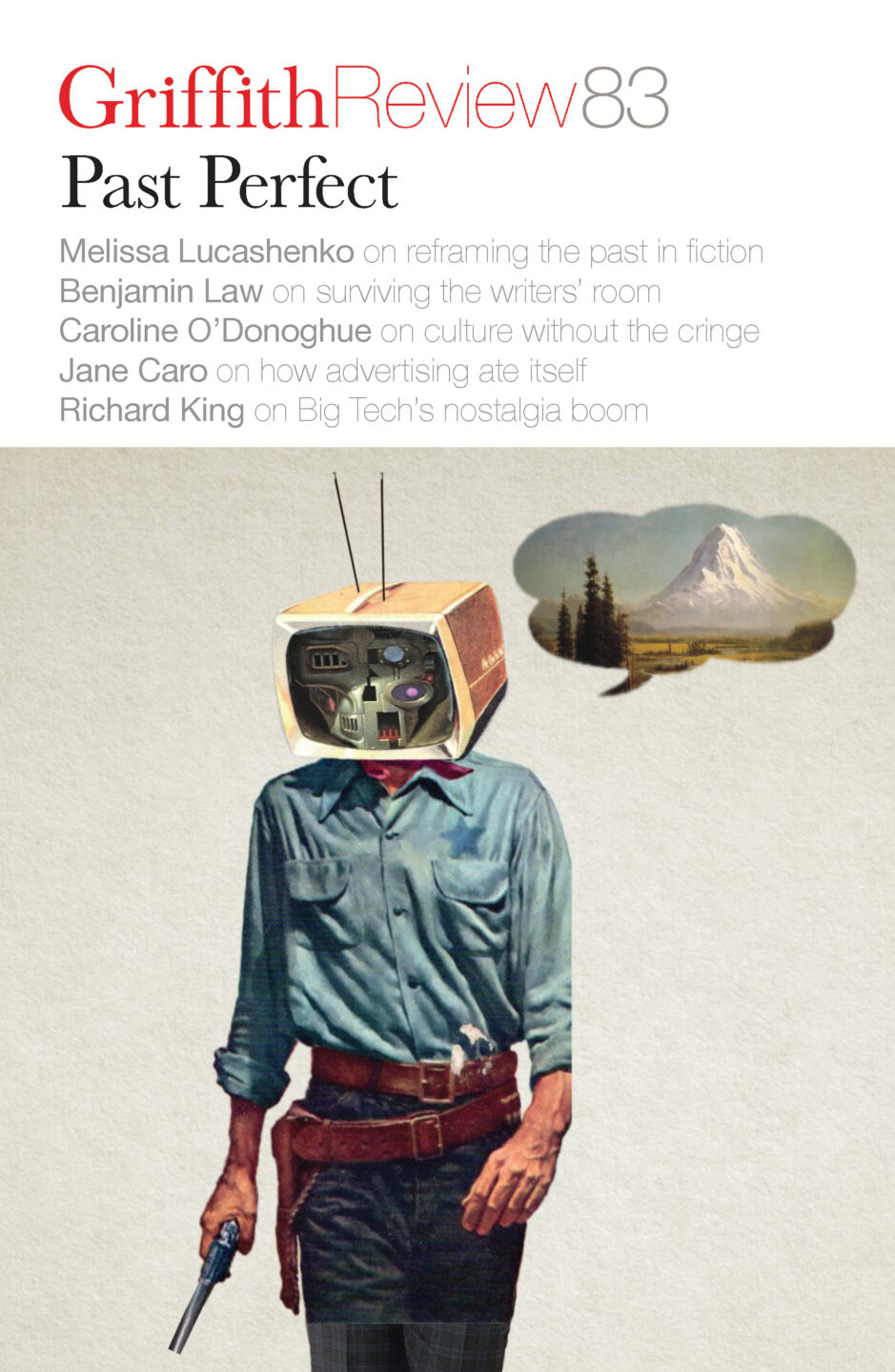Featured in

- Published 20240206
- ISBN: 978-1-922212-92-4
- Extent: 204pp
- Paperback, ePub, PDF, Kindle compatible


Already a subscriber? Sign in here
If you are an educator or student wishing to access content for study purposes please contact us at griffithreview@griffith.edu.au
Share article
More from author

Certified flesh
To put it simply: the raw fascination with our own physicality – our bodily processes – is now a general cultural phenomenon. Reality is catching up to body horror, as human beings become uncanny to themselves.
More from this edition

Scarlett fever
Non-fictionThe competition was notable for its shift away from being a Vivien Leigh lookalike contest. The bid to find a woman who, instead, ‘most closely’ resembled how Scarlett ‘would act and speak today’ and embodied ‘her spirit and sass’ opened up the search to any woman with a bit of chutzpah, including, in theory, Black and other women of colour.

From anchor to weapon
Non-fictionIn 1930s Germany, the slogan ‘blood and soil’ was most prominently promulgated by the Reich Ministry of Food and Agriculture, which positioned itself not merely as an administrator but a kind of advocate-guardian of the soil and its workers. In 1930, Adolf Hitler recruited Richard Walther Darré, then a leading blood and soil theorist, to the Nazi Party. On seizing power in 1933, Hitler appointed Darré Reichsminister of Agriculture, a role he occupied until 1942. Recently, for reasons that are unclear but politically alarming, Darré’s works on blood and soil have been translated and republished in English to some fanfare.

Apocalypse, then?
FictionWriting took almost everything from me. Most afternoons, I’d arrive home from teaching classrooms of uninterested students, have a little Henry time, defrost a ready-to-eat supermarket meal, open a bottle of shiraz and write until midnight. Most weekends, I’d start writing once the hangover wore off, break for lunch, and then write again until dinner. It wasn’t just punishing on my physical health, it ruined my relationships, most recently with Greg, who said I’d die miserable and alone if I maintained my grim routine. And for what? The occasional acceptance from an obscure journal read by twelve other short-story writers?